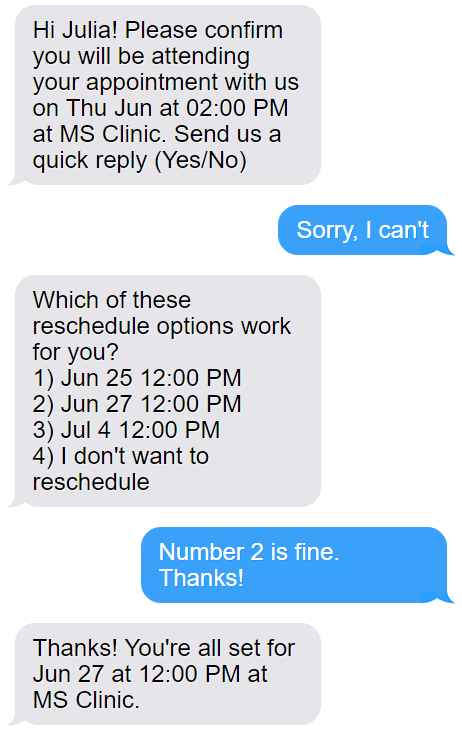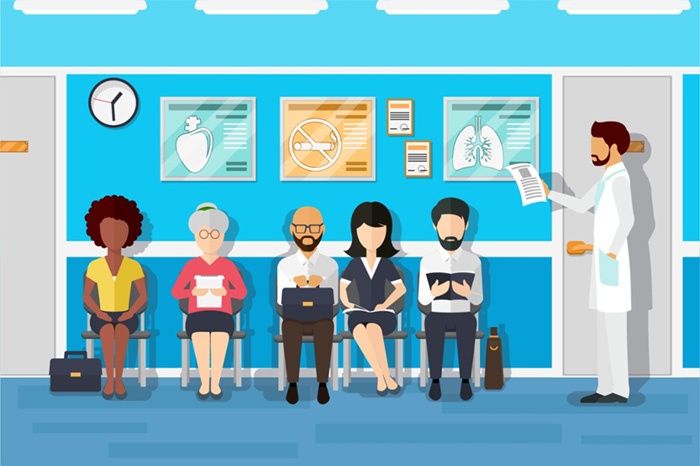Patient's Cancellation Issue May Have An Antidote
How common is it that patients cancel their appointments and never reschedule?
Are you aware of how this issue is damaging your practice?
These numbers will blow your mind:
- 15% of appointments are rescheduled
- 72% of patients who no-show never reschedule their appointments
- The lack of follow-up and a complicated scheduling management system are the most common reasons why patients don’t reschedule
How do patients feel about this? Currently practices rely on phone calls for scheduling and traditional one-way text reminders.
- An average phone call to schedule takes 8 minutes
- Patients scheduling via phone call has only 59% success rate, which often leaves them frustrated
- 76% of patients believe that texts are more convenient than phone calls
By sticking to the traditional communication channels, practices aren’t only losing money… they are also losing patients.
How can practices rid themselves of this issue?

There’s a new solution on the market. It’s a service called Holly, which is a virtual assistant that uses artificial intelligence to connect with patients through two-way texting as a real human would.
Her unique algorithm compliments patients’ time preferences and the doctor’s agenda.
How does she manage these tasks?
- Holly contacts the patient asking for an appointment confirmation.
- If the patient needs to reschedule, Holly looks through the doctor’s available slots and offers several options.
- Finally, the patient can choose the most convenient time and Holly schedules the new appointment into the doctor’s calendar automatically.
This new tool will most certainly have an impact on how medical providers communicate with their patients. We’ll also bet this IT becomes a game changer for practice efficiency, management and operations; which ends up as a win-win for both patients and practices.
Do you think this new tech would improve your practice’s operations? We’d love to hear your thoughts!


